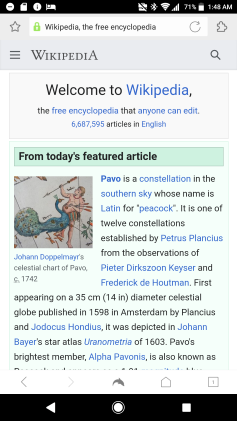Lightworks is a freemium non-linear editing system (NLE) for editing and mastering digital video. It was an early developer of computer-based non-linear editing systems, and has been in development since 1989. Lightworks won a 2017 EMMY Award for being one of the first to create digital nonlinear editing software. The development of an open-source version was announced on April 11, 2010. However, no source code of the program has been released. In July 2020, a Lightworks product manager confirmed that they "Still hope to announce something in the future" about Lightworks' open source development.

Vorbis is a free and open-source software project headed by the Xiph.Org Foundation. The project produces an audio coding format and software reference encoder/decoder (codec) for lossy audio compression. Vorbis is most commonly used in conjunction with the Ogg container format and it is therefore often referred to as Ogg Vorbis.

DivX is a brand of video codec products developed by DivX, LLC. There are three DivX codecs: the original MPEG-4 Part 2 DivX codec, the H.264/MPEG-4 AVC DivX Plus HD codec and the High Efficiency Video Coding DivX HEVC Ultra HD codec. The most recent version of the codec itself is version 6.9.2, which is several years old. New version numbers on the packages now reflect updates to the media player, converter, etc.

StarOffice is a discontinued proprietary office suite. Its source code continues today in derived open-source office suites Collabora Online and LibreOffice. StarOffice supported the OpenOffice.org XML file format, as well as the OpenDocument standard, and could generate PDF and Flash formats. It included templates, a macro recorder, and a software development kit (SDK).

Haiku is a free and open-source operating system capable of running applications written for the now-discontinued BeOS, which it is modeled after. Its development began in 2001, and the operating system became self-hosting in 2008. The first alpha release was made in September 2009, and the last alpha was released on November 2012; the first beta was released in September 2018, followed by beta 2 in June 2020, then beta 3 in July 2021. The fourth beta was released on December 23, 2022, still keeping BeOS 5 compatibility in its x86 32-bit images, with a greatly increased number of modern drivers, GTK3 apps and Wine port, as well as Xlib (X11) and Wayland compatibility layers.

DivX, Inc. is a privately held video technology company based in San Diego, California. DivX, LLC is best known as a producer of three codecs: an MPEG-4 Part 2-based codec, the H.264/MPEG-4 AVC DivX Plus codec and the High Efficiency Video Coding DivX HEVC Ultra HD codec. The company's software has been downloaded over 1 billion times since January 2003. DivX, LLC's offerings have expanded beyond the codec to include software for viewing and authoring DivX-encoded video. DivX, LLC also licenses its technologies to manufacturers of consumer electronics devices and components used in these devices, of which over 1 billion DivX-enabled devices have shipped worldwide. DivX certifies that these licensed products are able to properly play DivX-encoded video.

Microsoft's Professional Developers Conference (PDC) was a series of conferences for software developers; the conference was held infrequently to coincide with beta releases of the Windows operating system, and showcased topics of interest to those developing hardware and software for the new version of Windows.
SubRip is a free software program for Microsoft Windows which extracts subtitles and their timings from various video formats to a text file. It is released under the GNU GPL. Its subtitle format's file extension is .srt and is widely supported. Each .srt file is a human-readable file format where the subtitles are stored sequentially along with the timing information. Most subtitles distributed on the Internet are in this format.

Arachne is a stable Internet suite containing a graphical web browser, email client, and dialer. Originally, Arachne was developed by Michal Polák under his xChaos label, a name he later changed into Arachne Labs. It was written in C and compiled using Borland C++ 3.1. Arachne has since been released under the GPL as Arachne GPL.
The following tables compare general and technical information for a variety of audio coding formats.

Mozilla Firefox 3.0 is a version of the Firefox web browser released on June 17, 2008, by the Mozilla Corporation.

Vuze is a BitTorrent client used to transfer files via the BitTorrent protocol. Vuze is written in Java, and uses the Azureus Engine. In addition to downloading data linked to .torrent files, Azureus allows users to view, publish and share original DVD and HD quality video content. Content is presented through channels and categories containing TV shows, music videos, movies, video games, series and others. Additionally, if users prefer to publish their original content, they may earn money from it.

GameFAQs is a video gaming website that hosts guides and other resources, as well as an active message board forum. It was created in November 1995 by Jeff Veasey and has been owned by Fandom, Inc. since October 2022; its current editor is Allen "SBAllen" Tyner.
Gears, formerly Google Gears, is discontinued utility software offered by Google to create more powerful web apps by adding offline storage and other additional features to web browsers. Released under the BSD license, Gears is free and open-source. Gears was conceived at a time when a comparable alternative was not available. However, Gears was discontinued in favor of the standardized HTML5 methods that eventually became prevalent.

Stage6 was a video sharing website owned and operated by DivX, Inc., where users could upload, share, and view video clips. Stage6 was different from other video services in that it streamed high quality video clips that were user-encoded with DivX and Xvid video codecs.
Web Slices are a web feed technology based on the hAtom Microformat that allows users to subscribe to portions of a web page. Microsoft developed the Web Slice format, and published a specification under their Open Specification Promise. The specification is not published by any independent standards body. Introduced in Internet Explorer 8 Beta 1, Web Slices can be previewed in a fly-out window. As of 2012,, Internet Explorer 8 and 9 were the only browsers to support Web Slices natively, although Mozilla Firefox had support via an add-on called webchunks.
DivX Plus HD, launched in 2009, is the brand name for the file type that DivX, Inc. has chosen for their high definition video format. DivX Plus HD files consist of high definition H.264/MPEG-4 AVC video with surround sound Advanced Audio Coding (AAC) audio, wrapped up in the open-standard Matroska container, identified by the .mkv file extension. DivX Plus HD files leverage and extend on Matroska's ability to support multiple language tracks, subtitles, chapters, and additional bonus content.

MathJax is a cross-browser JavaScript library that displays mathematical notation in web browsers, using MathML, LaTeX and ASCIIMathML markup. MathJax is released as open-source software under the Apache License.

The Dolphin Browser is a web browser for the Android and iOS operating systems developed by MoboTap Inc. It was one of the first alternative browsers for the Android platform that introduced support for multi-touch gestures. Dolphin Browser uses its native platform's default browser engine.
High Efficiency Video Coding implementations and products covers the implementations and products of High Efficiency Video Coding (HEVC).














